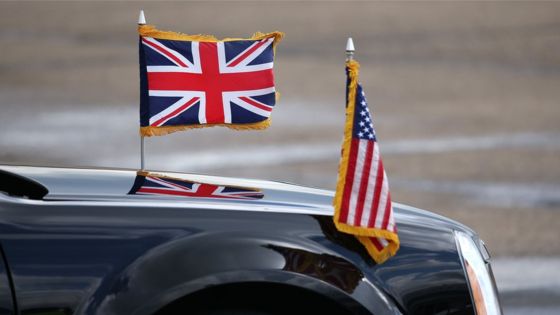
Nearly all the possible trading relationships between Britain and the European Union following Brexit would be less favourable than staying in the European Union, according to an influential US think tank.
The Rand Corporation study said the worst option would be a “no deal”.
That would leave the UK economy 4.9% poorer by 2029.
“No deal” would also have a negative effect on the EU economy, but it would be “relatively minor”.
The report said that even a “soft Brexit” involving staying in the free market would not be as positive economically as staying in the EU.
Rand plays a significant role in America, with half of its funding coming from the US government.
In Europe it has advised the UK government on policy issues such as mental health, as well as the European Parliament and the European Commission.
Its report argues that Brexit was likely to have a “mostly negative effect” on American interests in Europe, given the UK is a firm ally of the US in security matters and a supporter of free markets.
“An EU without the UK may be more willing to create barriers for non-EU companies, to the detriment of US companies and the American economy,” the report says.
“In the development of EU defence policy, for example, the UK aim was often to ensure that EU measures did not undermine NATO and the strong transatlantic partnership.”
That approach could change once Britain has left the EU.
‘How much worse-off’
The Rand report said that there was only one option that would leave the UK better off outside the European Union: a comprehensive three-way free trade deal between Britain, the US and the EU.
But the report admits that is an extremely unlikely scenario, given that the present trade negotiations between the US and the EU (the Trans-Atlantic Trade and Investment Partnership) are not supported by President Donald Trump and are “in a hiatus”.
“The analysis clearly shows that the UK will be economically worse-off outside of the EU under most trade scenarios – the key question for the UK is how much worse-off,” said Charles Ries, a vice-president at Rand and the report’s lead author.
“It is in the best interests of the UK, and to a lesser extent the EU, to achieve some sort of open trading and investment relationship post-Brexit.”
Mr Ries is former US ambassador to Greece and was also principal deputy assistant secretary of state for European affairs in the US between 2000 and 2004.
Although the report says that a loss of growth caused by leaving the EU could in part be compensated for by free trade deals with other countries such as India and China, they would be difficult to execute.
“Since the EU has a political incentive to demonstrate that the UK is worse off as a result of leaving the EU (so as to discourage other departures), and some in the UK believe the costs of ‘no deal’ are low, there is a real risk that the parties – even while seeking to cooperate – will find themselves struggling to reach any agreement,” the report says.
“Unfortunately for the UK, ‘no deal’ – or, indeed, any of the ‘hard Brexit’ scenarios – is the worst situation for the future, with significant losses in terms of economic growth.”
The report says that many American companies invest in the UK because it offers open access to the EU.
It argues that foreign direct investment (FDI) has been boosted by 28% because of the UK’s membership of the EU.
‘Fault lines’
“Our research indicates that a fall back to World Trade Organisation rules would reduce EU FDI inflow into the UK by about $7.8bn (£5.8bn).
“If the UK signs a comprehensive FTA [free trade agreement] with the EU, investment from the EU would fall by $3.4bn – a reduction of about 9% from EU membership investment levels.
“Signing an FTA with the United States would add about $3.2bn in FDI inflows for the UK from our baseline scenario, making up about one-third of investment lost due to termination of EU membership. The best option would be to conclude a three-way UK-EU-US trade agreement.”
Rand says that once free trade negotiations start, “several fault lines” could emerge among the remaining 27 members of the EU, which may put the UK in a stronger position.
“These include the diverging interests of the countries that use the euro currency and those that do not, as well as the diverging interests of those countries that are net contributors to the EU budget and those that are net recipients,” the report says.
“Interests could also diverge on regional bases. Northern European countries may seek the maximum possible free movement of goods while trying to lure the financial industry from London to their countries.
“Southern European countries may focus on securing a high financial settlement from the UK and preserving agricultural and fisheries policies.
“And eastern European countries may seek strong protections for their citizens currently in the UK. These differing priorities may come into play as trade-offs are made.”